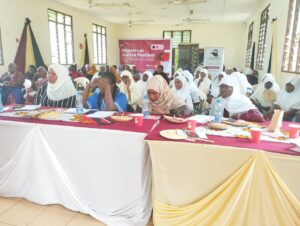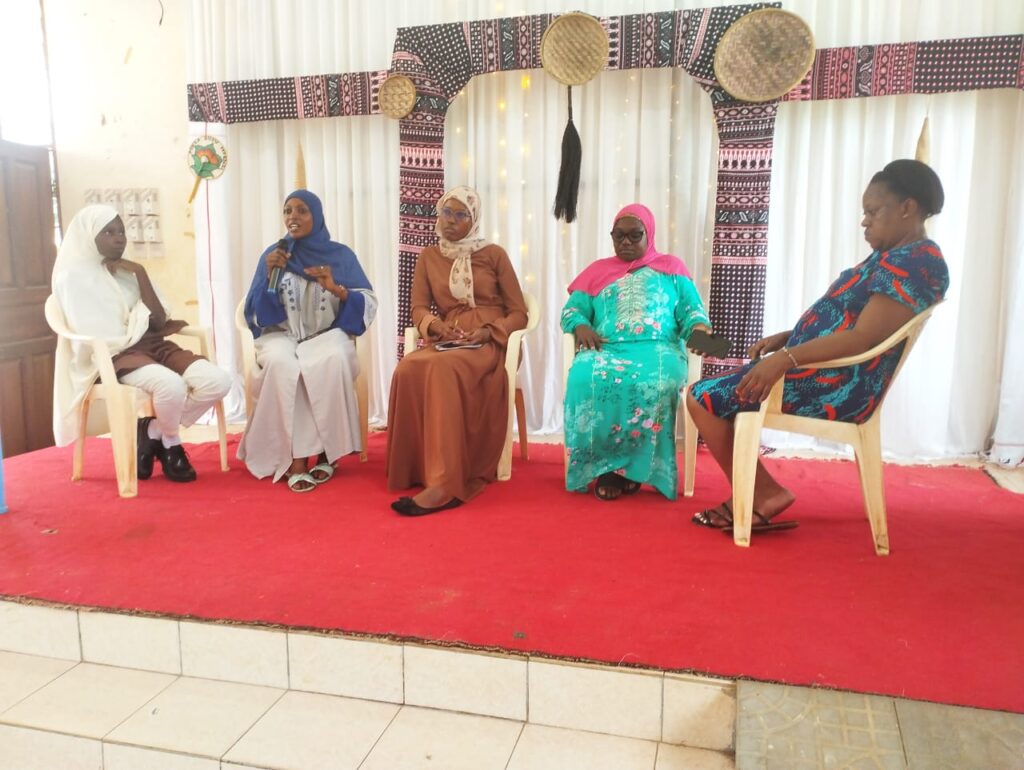By Nuru Salim
As the world commemorates Menstrual Hygiene Day, Bongwe in Kwale County became a focal point for menstrual justice bringing together county officials, health practitioners, pupils from schools in Kwale and the community to dismantle period stigma and advocate for inclusive menstrual health policies.
The Menstrual Justice festival, spearheaded by Zamara Foundation in collaboration with local partners and government officials, provided a platform for young girls and women to speak openly about menstruation, a topic that is still shrouded in silence, shame, and myths in many parts of rural Kenya.
“For a very long time we’ve talked about menstruation, but not in depth about issues like endometriosis and other complications affecting our girls. They suffer silently because there is little awareness at the community level. That’s why we brought this festival directly to the grassroots, to unite our voices against stigma,” said Lucy Kombe, a lead advocate from Zamara Foundation.
With open dialogue and resource distribution, engagement tackled the widespread challenges around menstrual health and hygiene management including lack of sanitary products, misinformation, social taboos, and the silent suffering of girls facing reproductive health complications like endometriosis.
“This festival is aimed at bringing together young girls so that they can understand and embrace themselves. This is more about menstrual justice,” said Mary Adhiambo from Achetu Youth CBO, a partner in the event.
The Zamara Foundation, which has long championed menstrual health rights in Kwale, used the event as a tool for public education, advocacy and direct support distributing sanitary products, engaging youth, and emphasizing the intersection between menstrual health and hygiene.
“Anyone who begins menstruating should not be shamed or isolated. They are one of us, and we must live with them the way we have before they get into the cycle,” urged Rehema Rai, a resident of Kwale.
The real-life experiences are a stark reminder of the gaps that persist in rural areas. Currently, only 46% of Kenya’s rural population use disposable sanitary pads, compared to 65% in urban areas, studies show.
Additionally, about 20% of rural residents still rely on unsafe alternatives like cloths, rags, or natural materials due to affordability and lack of access.
At the festival were pupils who also voiced their needs, “We don’t have enough sanitary pads in school. We need them in large supply for all students. I also think menstrual education should be provided for everyone, both girls and boys so that periods are understood and treated as a norm both in school and at home,” said Bibi Salim, one of the student representatives from Ng’ombeni Primary School.
Elder women in the community were urged to step up and offer safe spaces for younger girls transitioning into menstruation, ensuring that periods are met with care, not fear.
Menstrual health is a human rights issue, enshrined in Article 43 of the Kenyan Constitution, which guarantees the right to the highest attainable standard of health, including reproductive healthcare. It’s also a development issue, directly tied to the achievement of several Sustainable Development Goals (SDGs) including those on health, education, gender equality, clean water and sanitation and sustainable consumption.
Over 200 members on the event called upon leaders to implement policies that ensure sanitary products are freely available in schools, comprehensive menstrual education is integrated into the curriculum and that health workers and teachers are adequately trained to support menstruating learners with dignity, sensitivity, and professionalism hence laying the foundation for a healthier, more equitable future for all.


